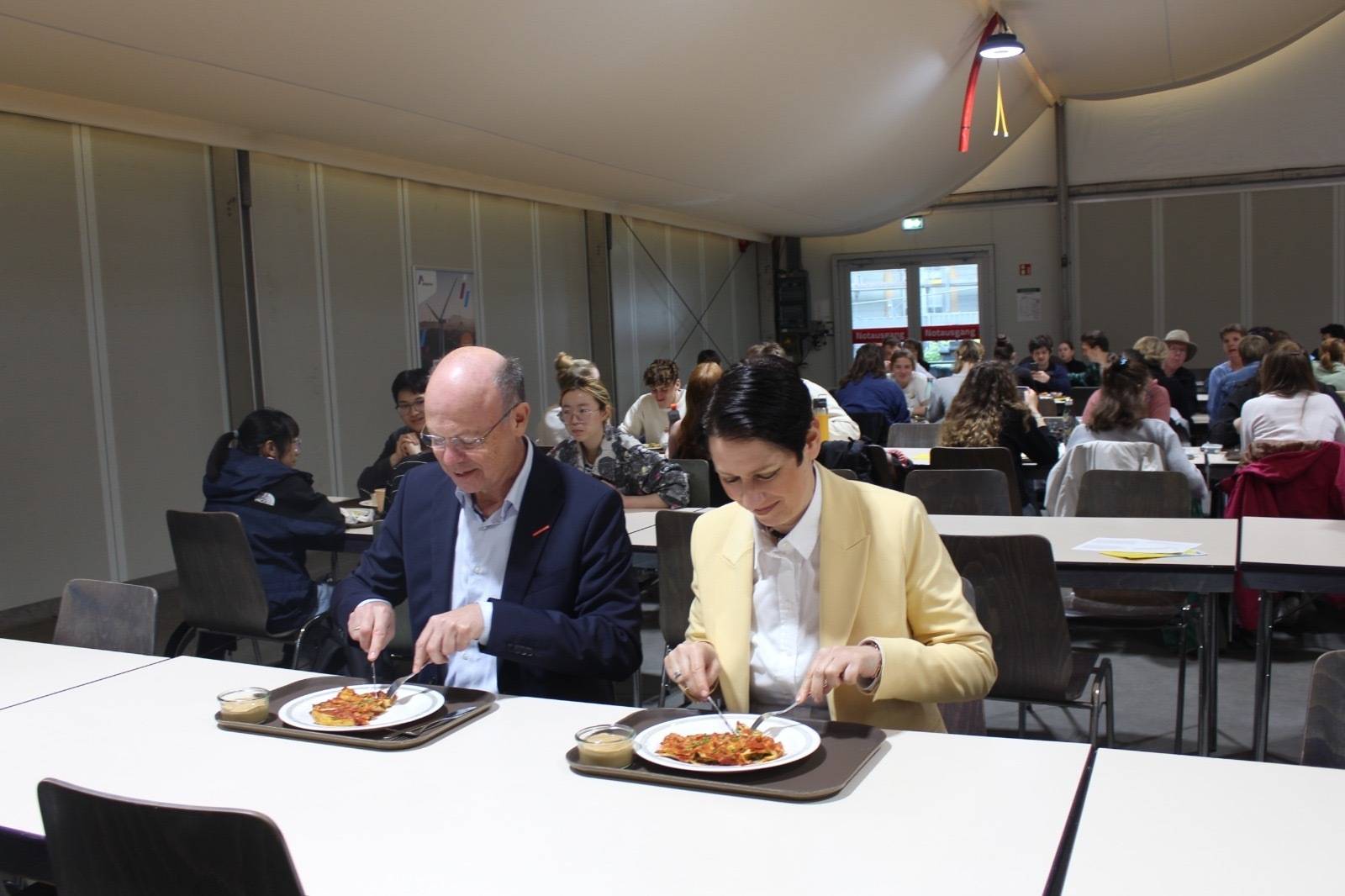Sustainability concept Veggie Month at the University in Bonn
Bonn · In the Unimensa am Hofgarten in Bonn, only vegan and vegetarian dishes will be offered for one month. This is part of the Studierendenwerk's long-term plan to become more sustainable. What do the students have to say about it?
Unusually high attendance in the university canteen at the Hofgarten: In addition to the students, the NRW Minister for Agriculture and Consumer Protection, Silke Gorißen, took a seat on Monday. The occasion is the Bonn Student Union's campaign month "It's so green". For five weeks, the refectory will exclusively offer vegan and vegetarian food. Students can usually choose between three vegan or vegetarian options, including, for example, a stew with vegan bockwurst.
Minister Gorißen opted for the vegetarian canelloni on Monday morning, "it can easily keep up with what they used to have". She herself was a "canteen-goer" in Bonn when she studied law there. Gorißen hopes that the campaign month will encourage more students to consider the issue of sustainability and to choose vegetarian or vegan options more often in the future.
The Studierendenwerk Bonn has set itself the goal of becoming climate-neutral by 2030. The campaign month is the result of a lengthy coordination process with the Bonn student body. "We take our responsibility seriously. To achieve this, meat consumption in the refectories must be reduced," says Managing Director Jürgen Huber.
The action month is supported by the project "NEiS - Nachhaltige Ernährung im Studienalltag" (sustainable nutrition in everyday student life) of the NRW consumer advice centre. "We want to support consumers in their healthy eating, and projects like this are valuable in this regard," says Wolfgang Schuldzinski, Director of the NRW Consumer Advice Centre.
The Studierendenwerk's measures also include reducing food waste and higher quality standards for meat products. "This will naturally lead to meat dishes becoming more expensive in the future. But the resulting steering effect is definitely desired," says Huber from the Studierendenwerk. At the moment, the Studierendenwerk is not planning to completely do without meat dishes on some days.
Bonn AStA critical of rising prices for students
On the subject of rising prices, the organised student body is cautiously critical. "High-quality food has its price and the state government must ensure that students do not suffer from rising prices," says Vasco Silver from the Bonn AStA. In general, the AStA is satisfied with the process, even if more speed would have been possible. In addition, some suggestions were not taken into account, for example halving the price at the end of opening hours in order to produce less food waste, says Thorben Thieme, AStA ecology officer.
Meanwhile, the students in the refectory like the campaign month: "It's a great campaign, but more attention should be paid to intolerances," says student Anna. And for Tom, a student of agricultural sciences, "meat is part of everyday food", but he is happy to get to know new vegetarian or vegan dishes during the campaign month.
(Original text: Jasper Nebel; Translation: Mareike Graepel)




